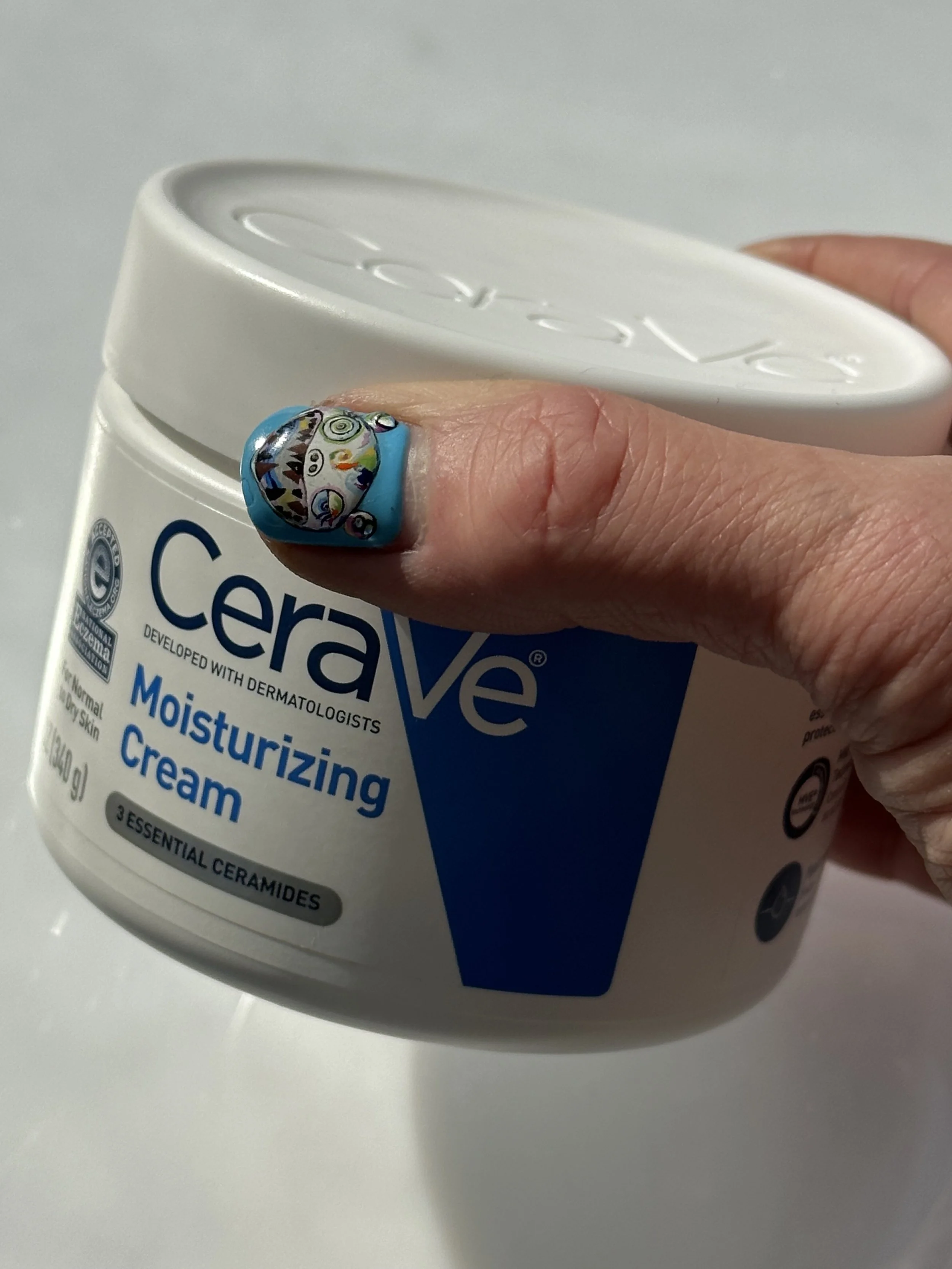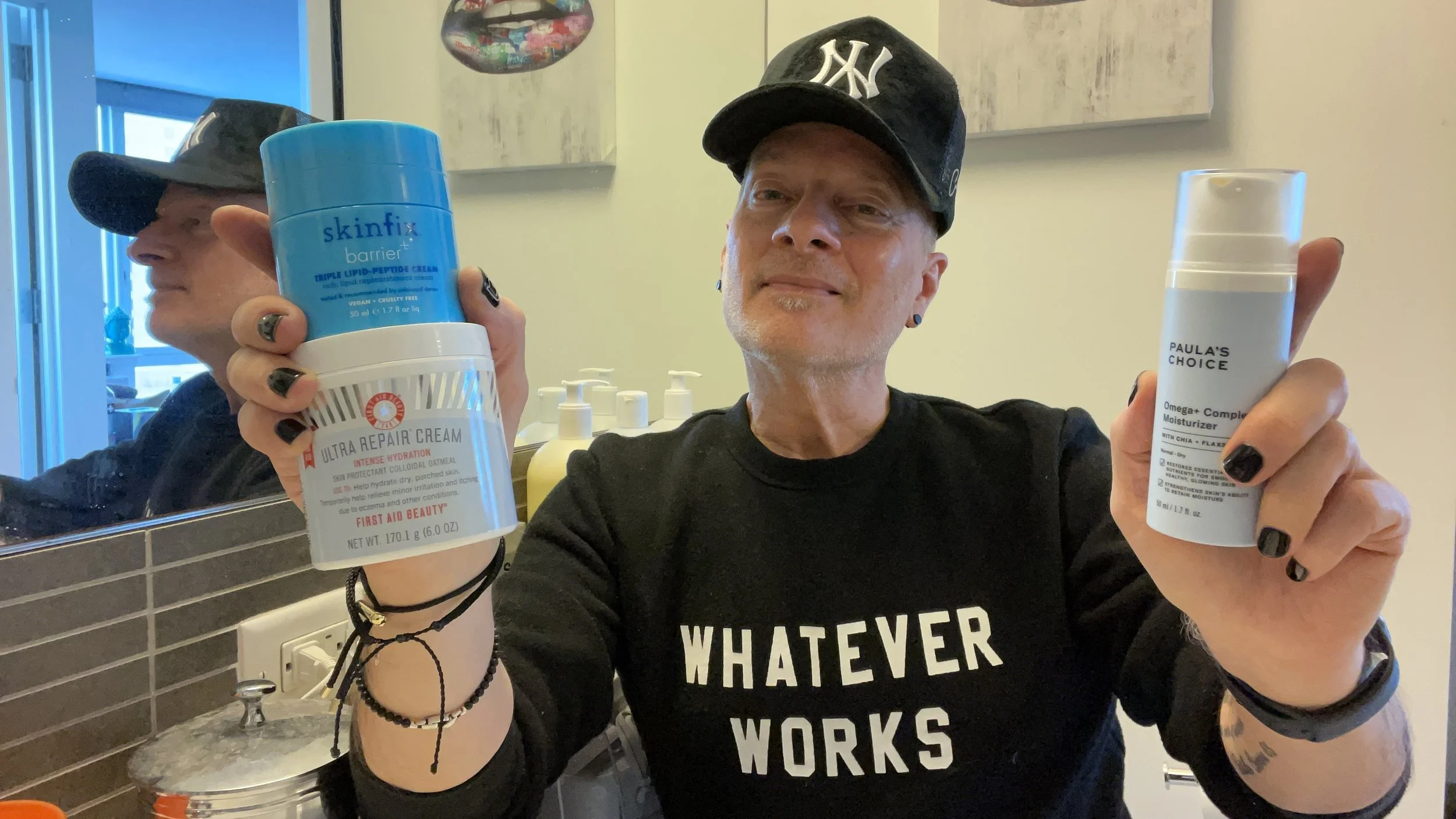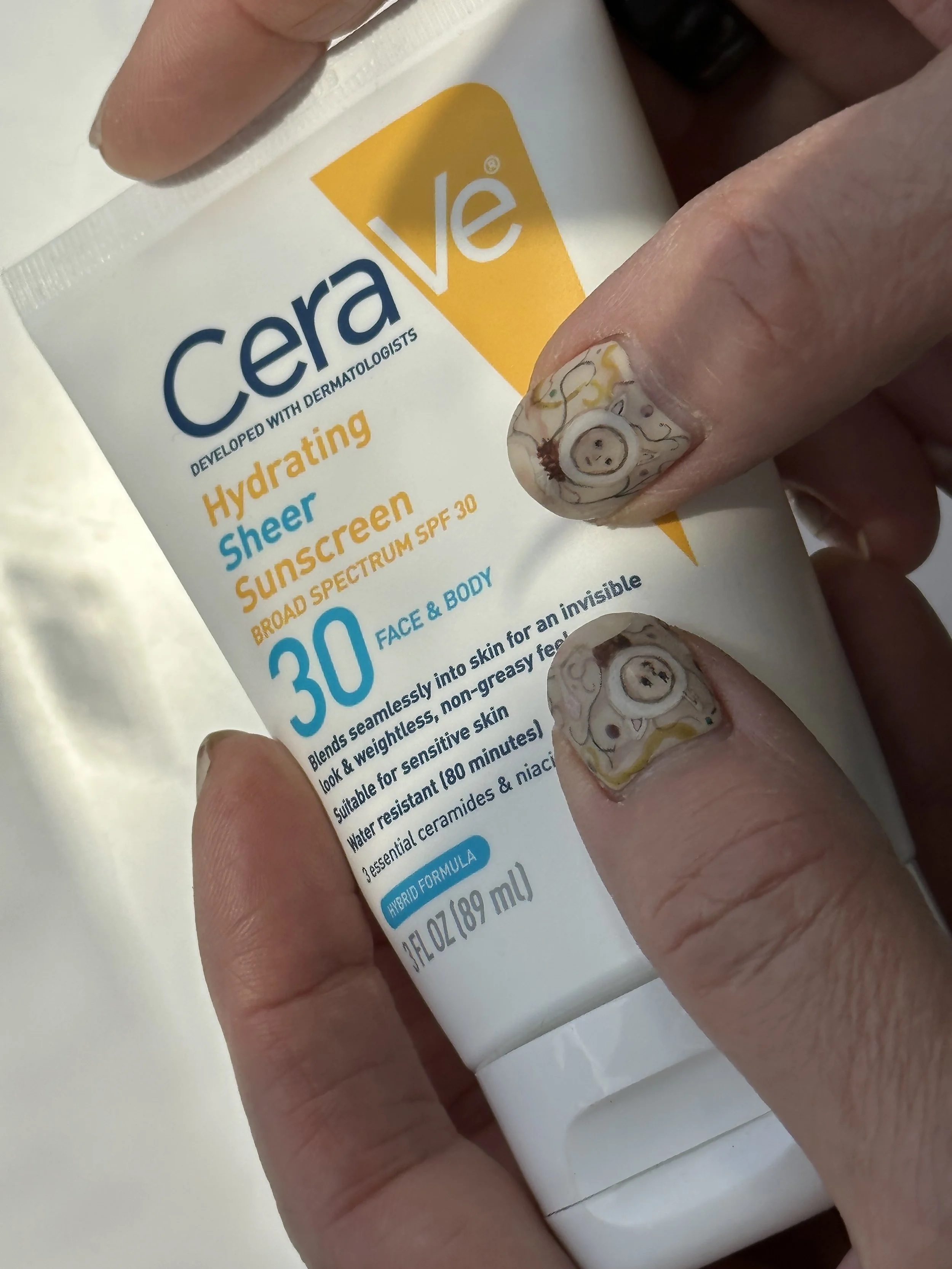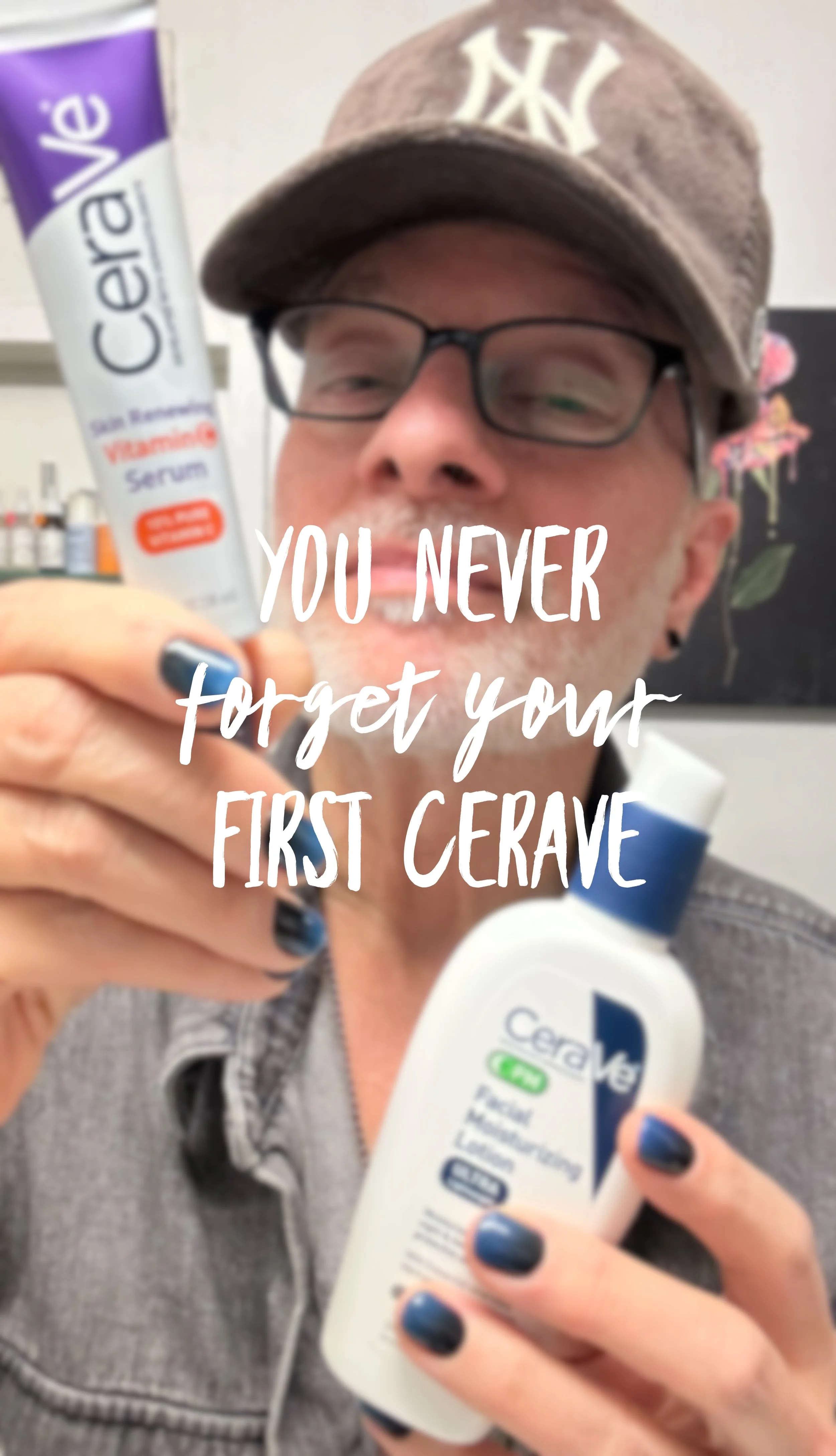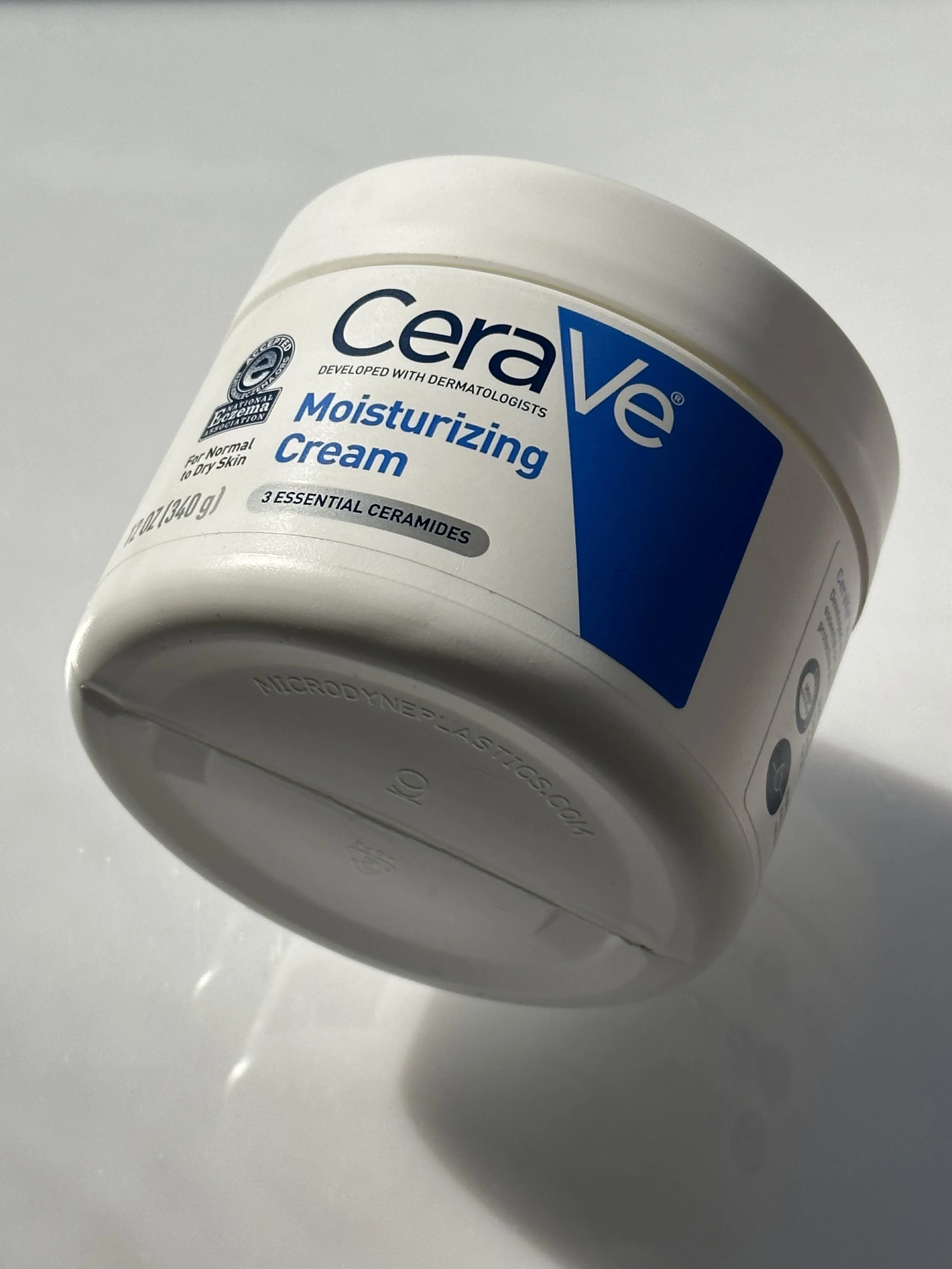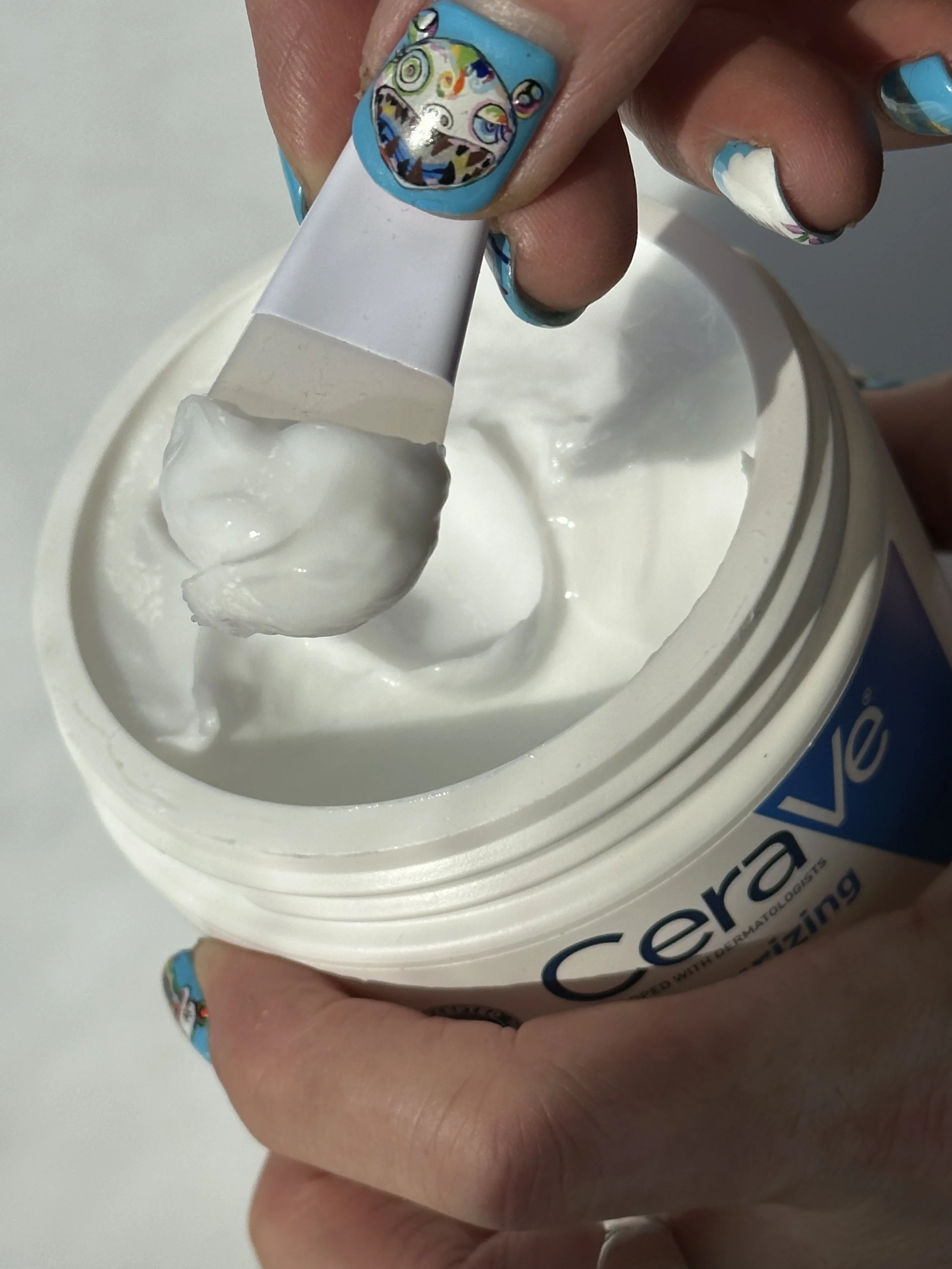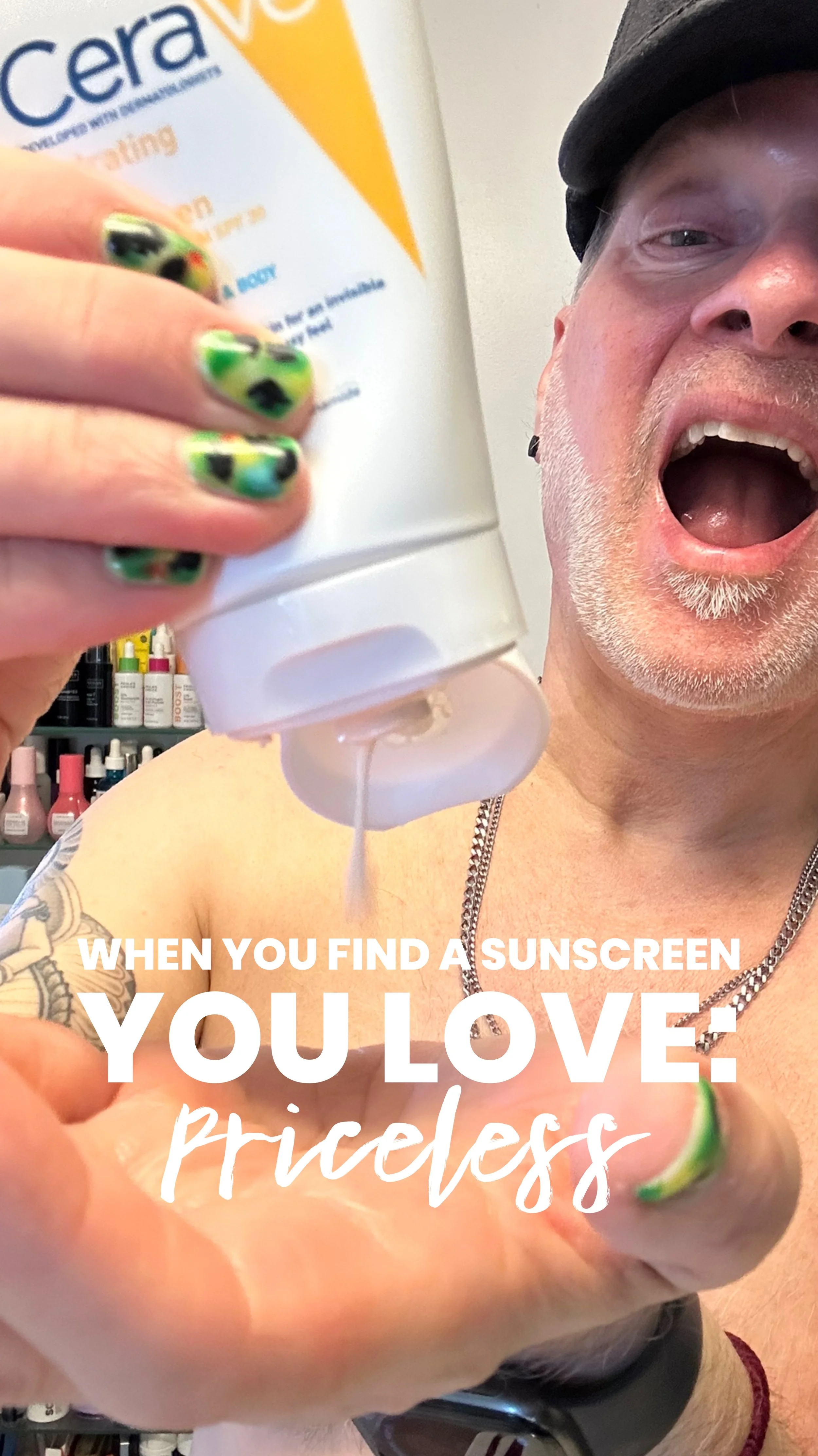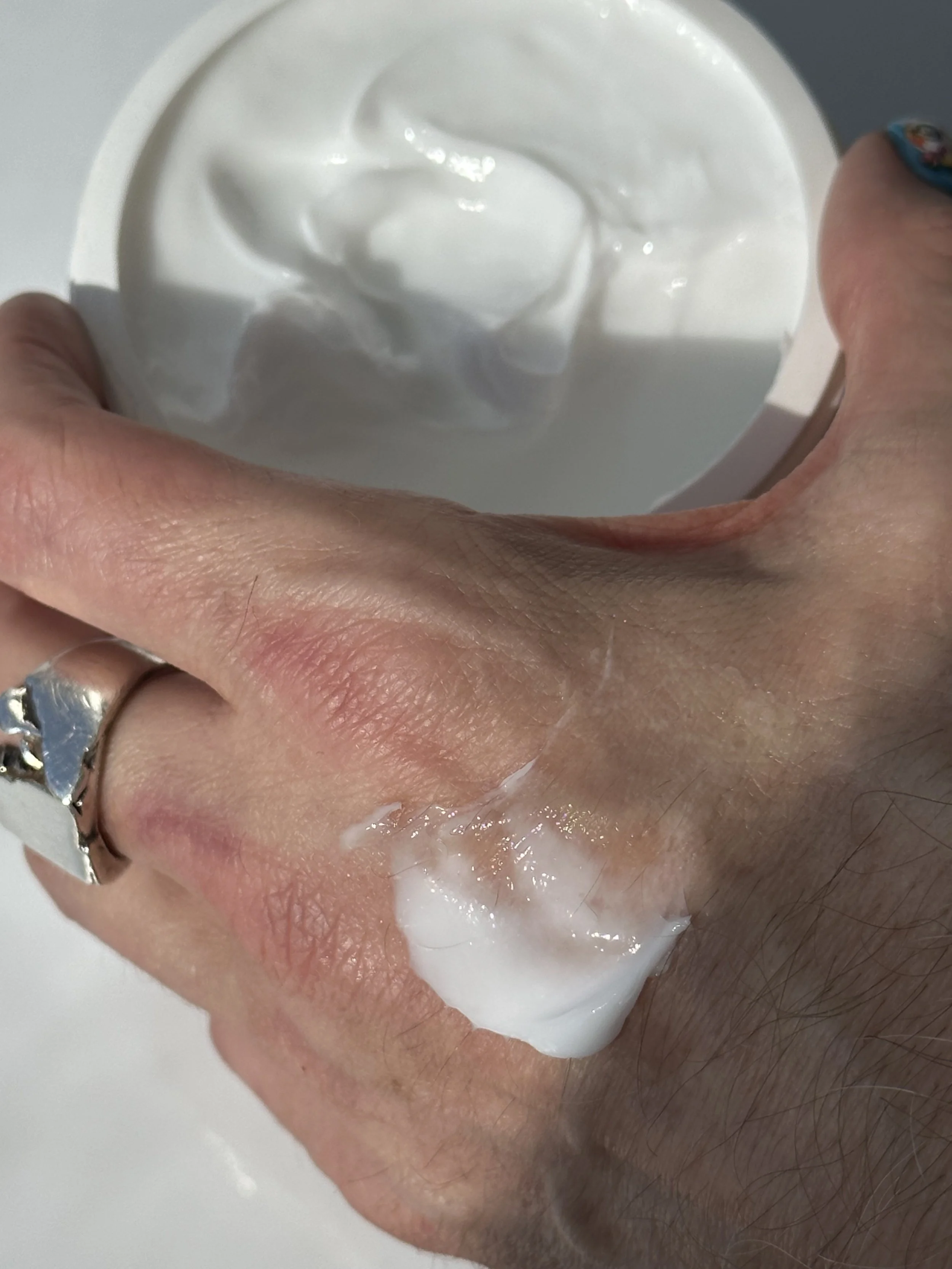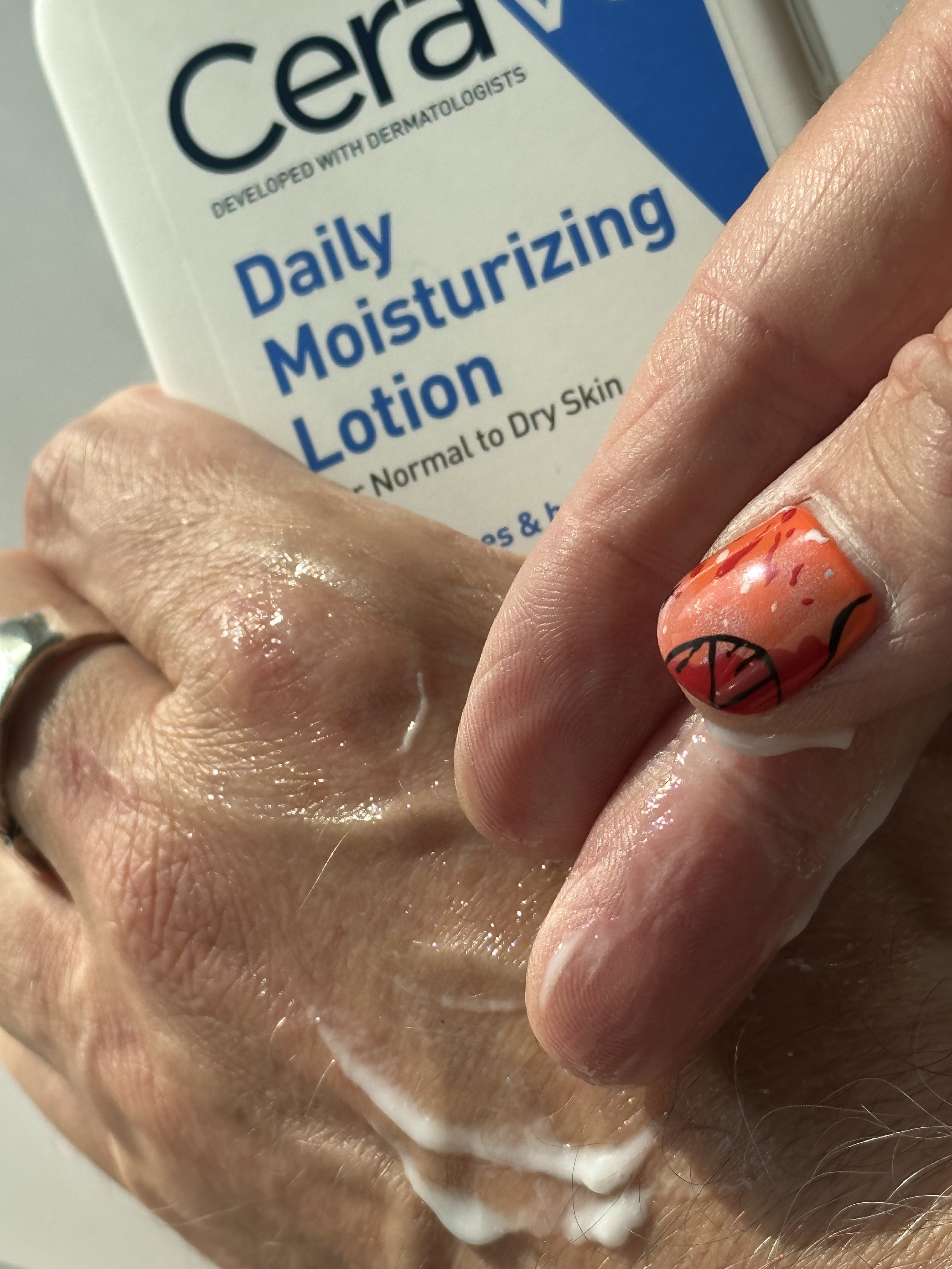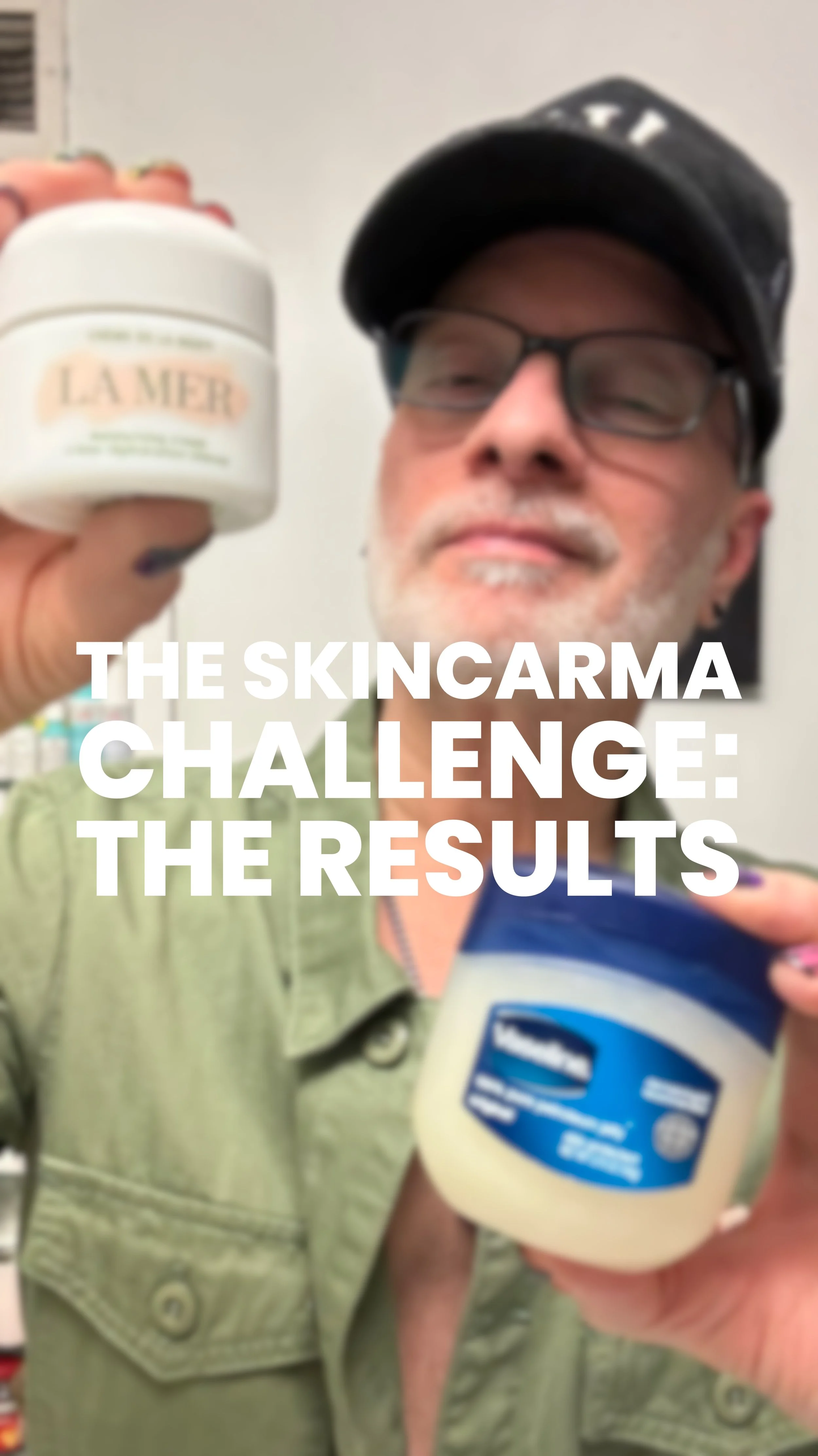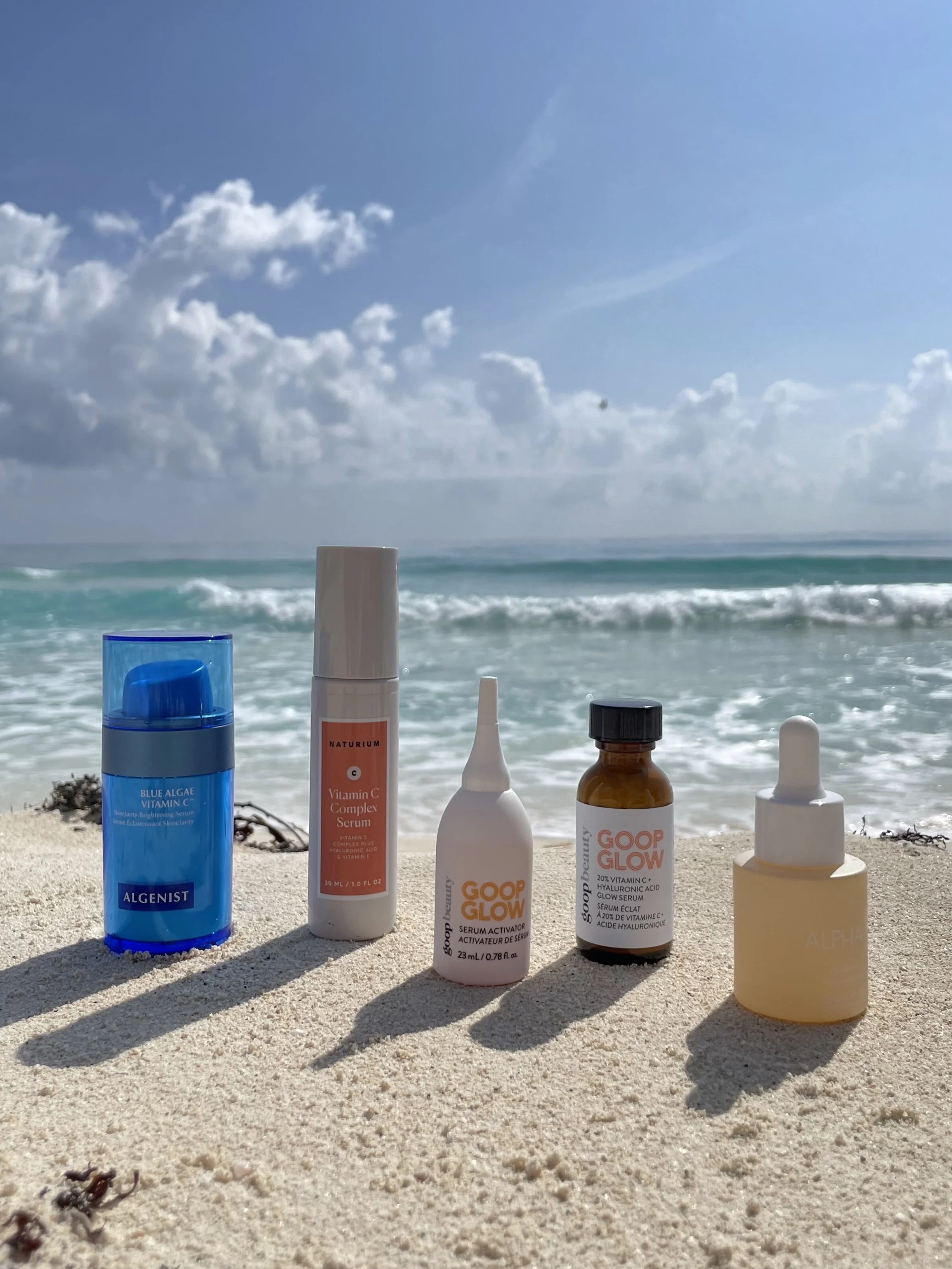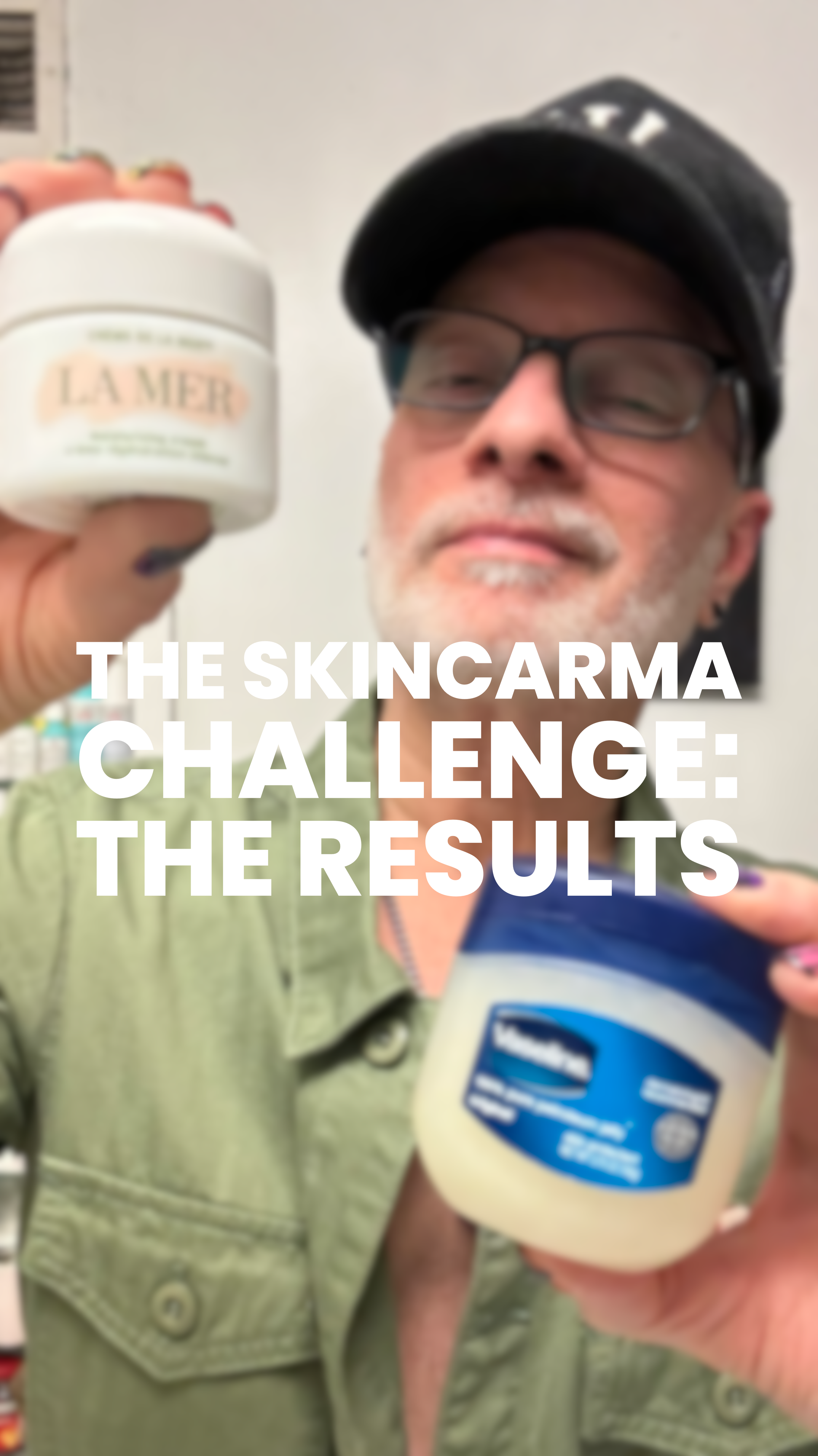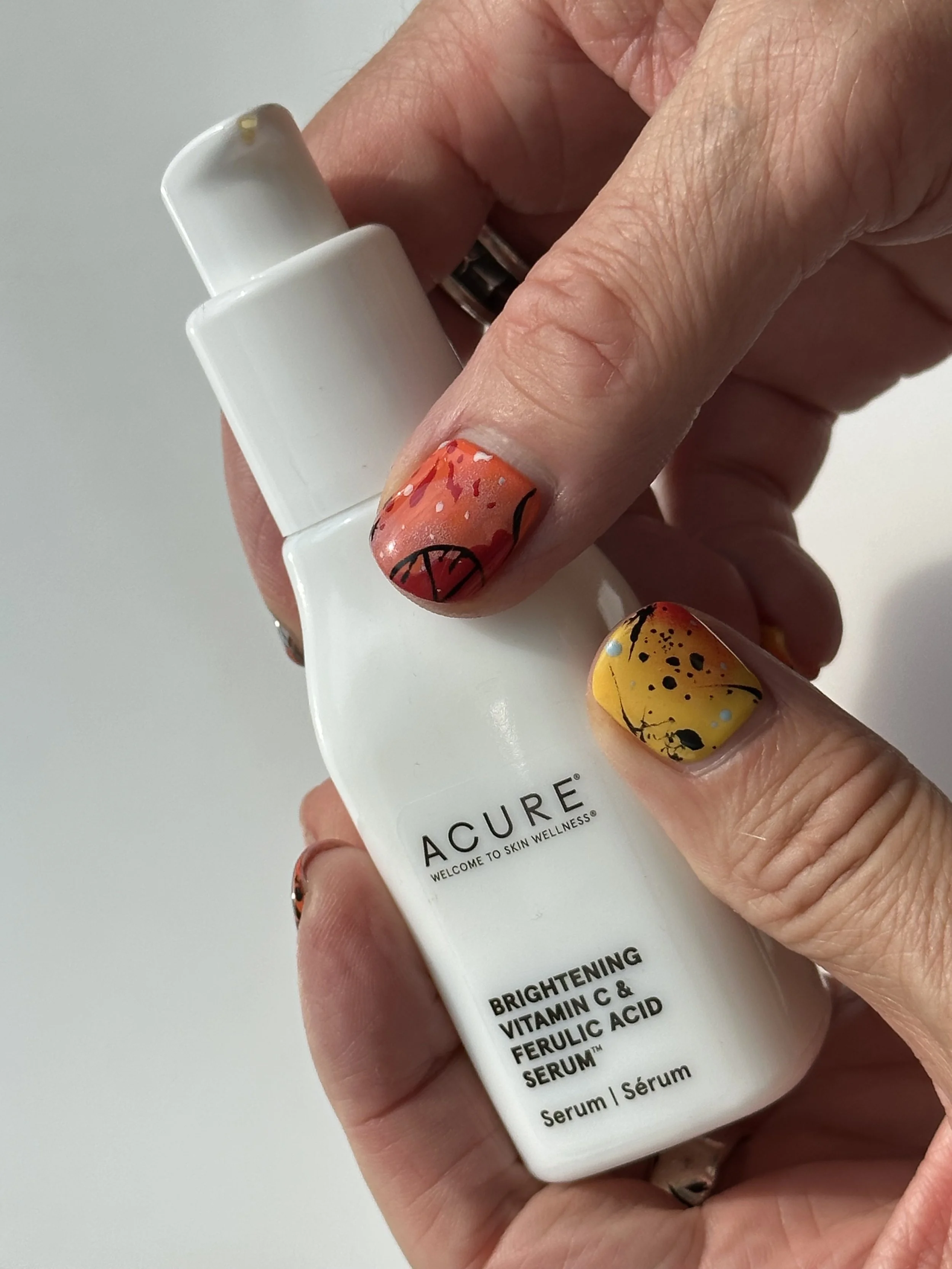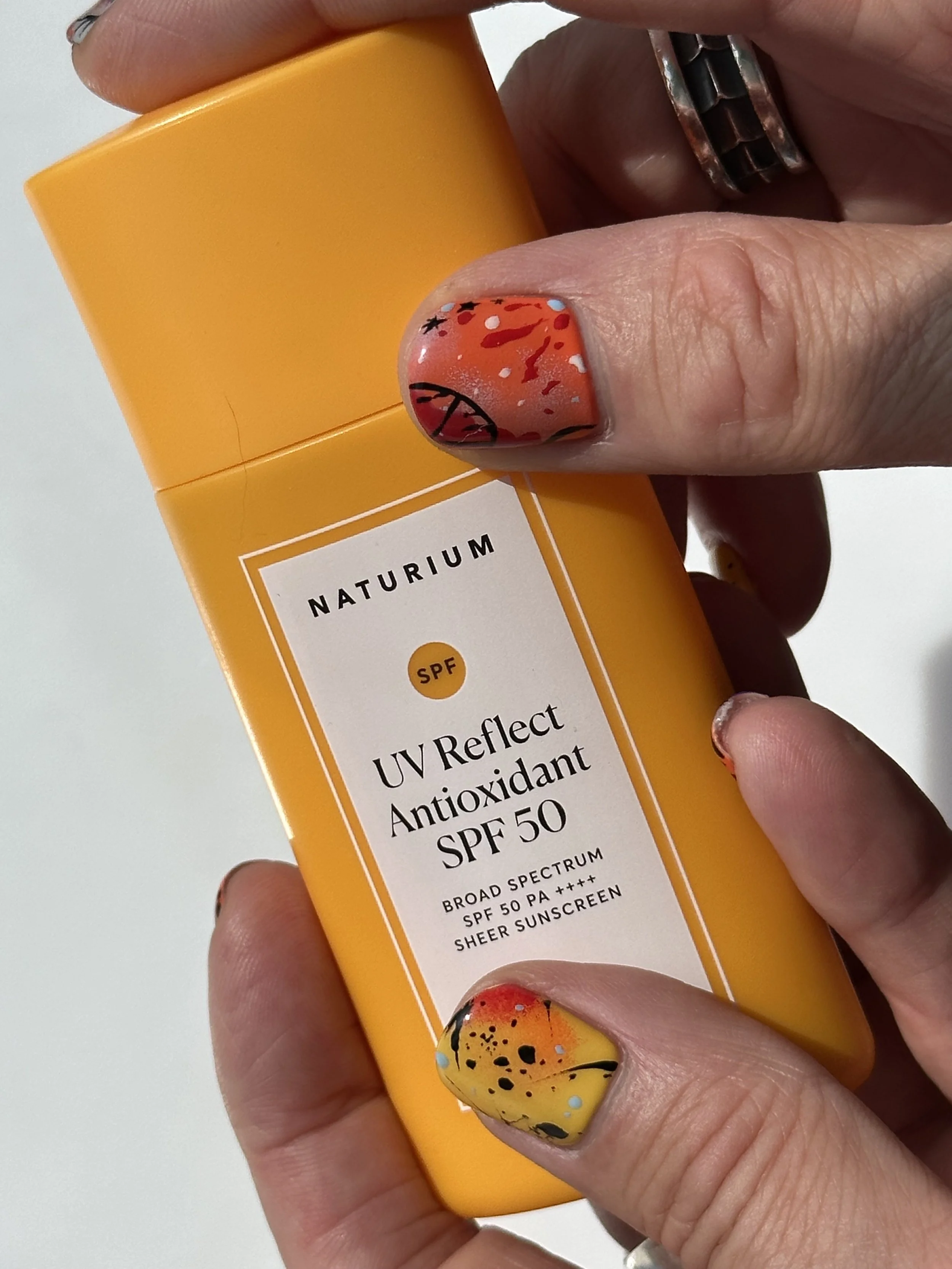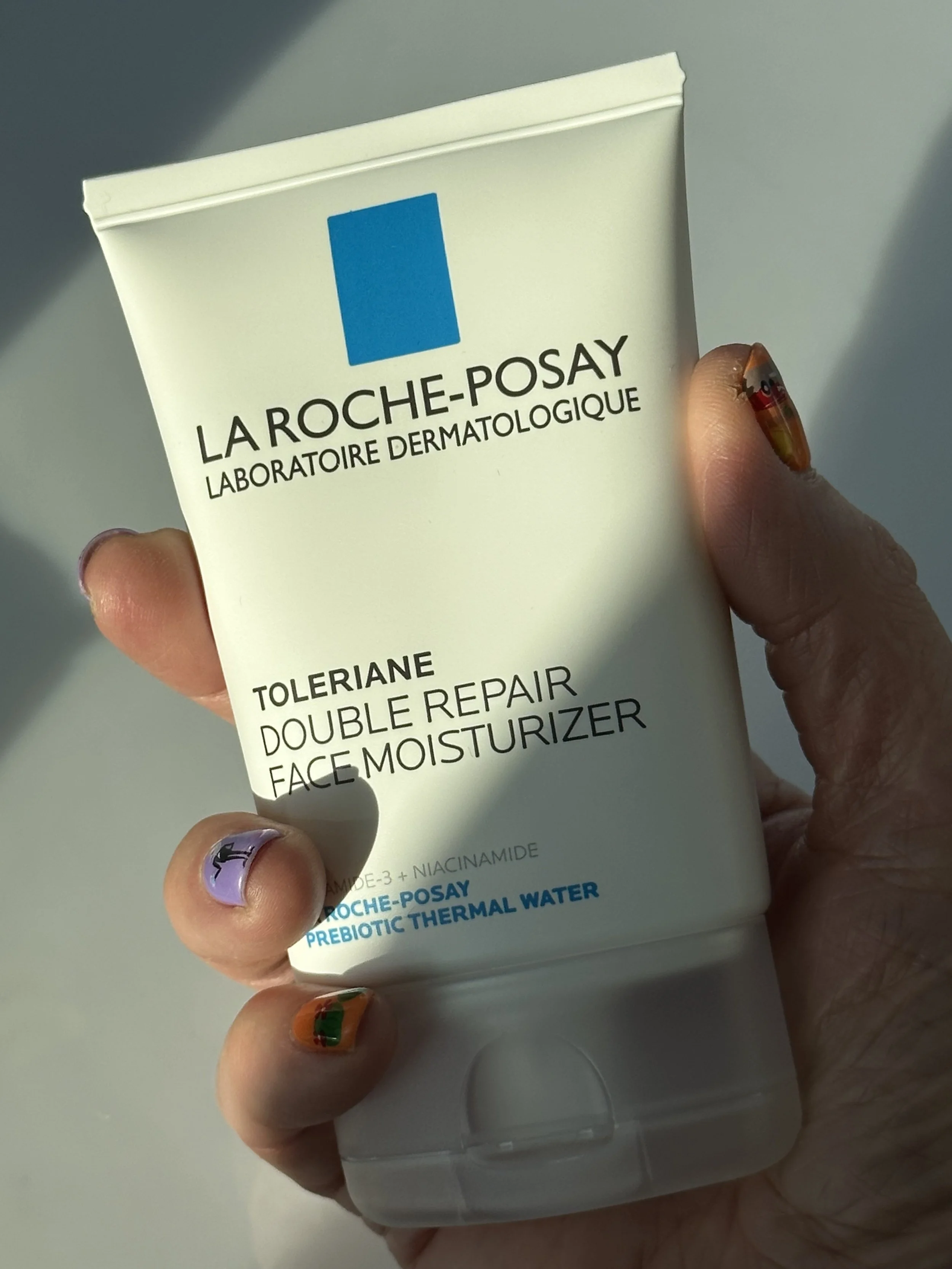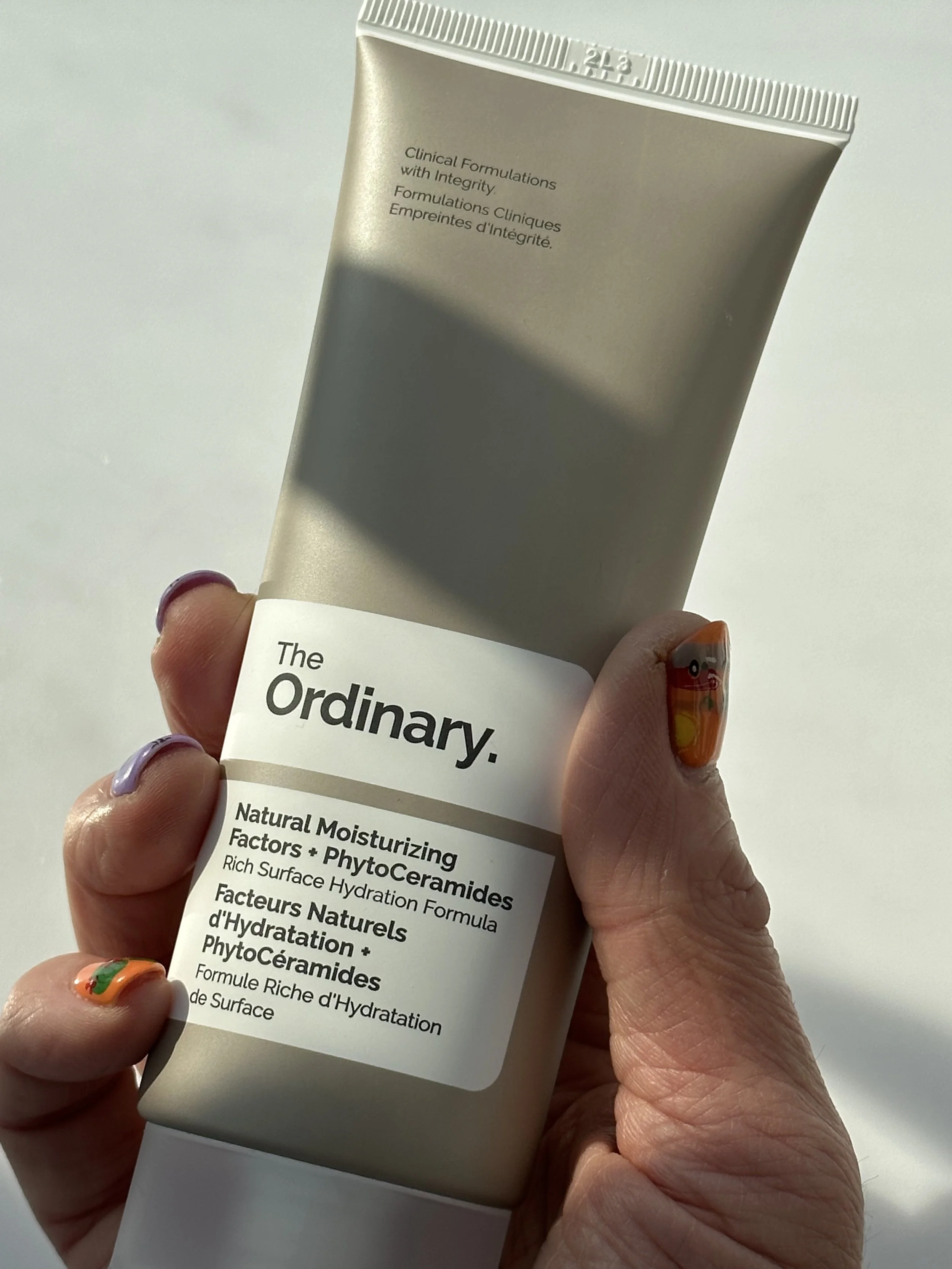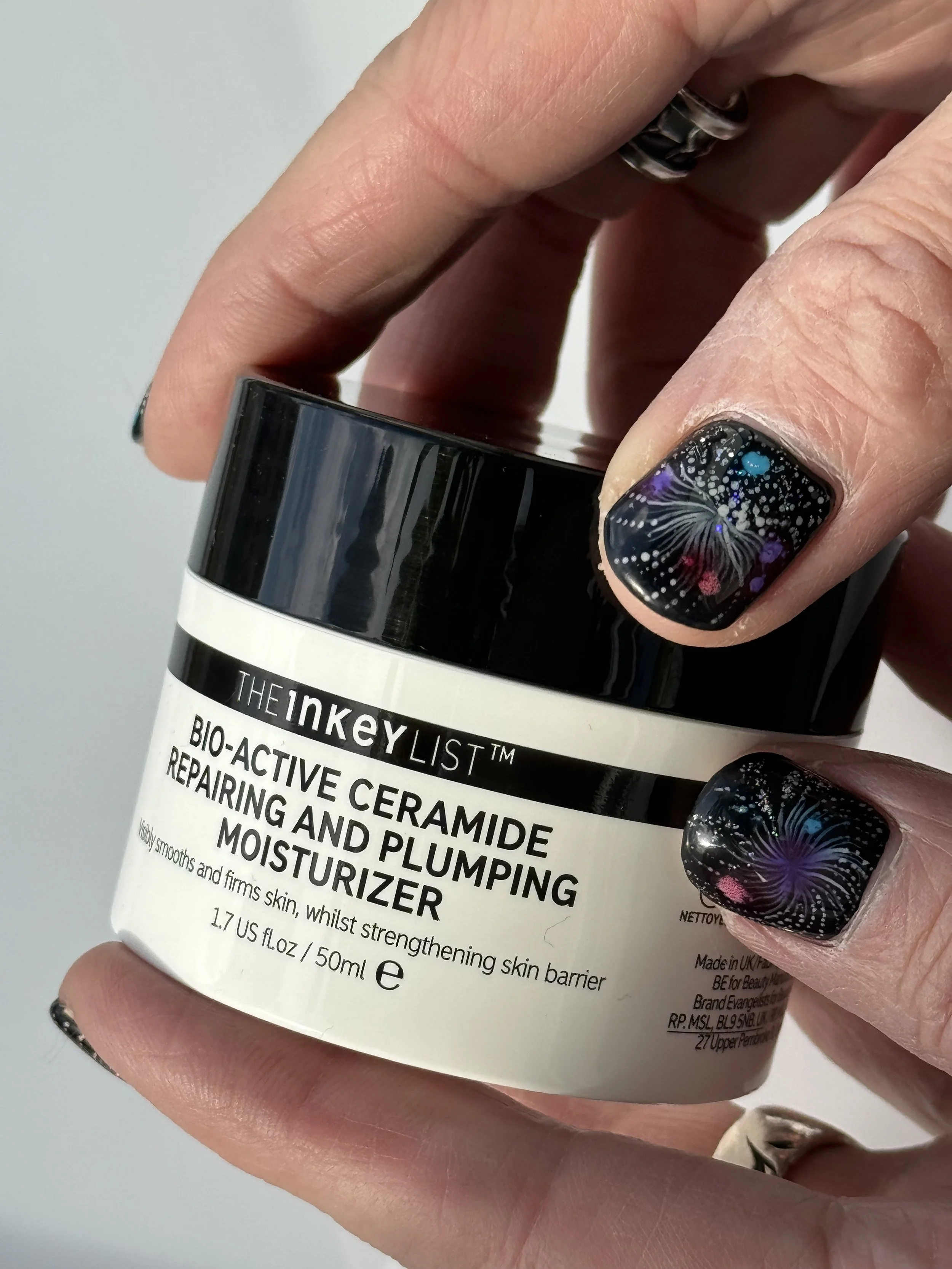PRODUCT REVIEW: CERAVE MOISTURIZING CREAM & DAILY MOISTURIZING FACE LOTION - What are the benefits of ceramide for skin? Is ceramide better than hyaluronic acid?
CERAVE MOISTURIZING CREAM & DAILY MOISTURIZING LOTION
Until about six months ago, I had never tried anything from CeraVe. The go-to brand for sensitive skin just never really caught my interest.
I’m not 100% sure why, because I have always admired the brand from afar. The formulas seemed legit, though they lean basic, which is kind of the point. CeraVe is all about the daily essentials – just what you need to maintain your skin health, and nothing that could potentially sensitize your skin.
I think, too, I didn’t find CeraVe all that appealing because it’s a mass-market, “drug store” brand and my work in beauty has predominantly centered around more premium skincare. I’m more familiar with the kind of brands you find in Sephora, Ulta and department stores. After all, the cosmetics floor in a major department store in is where I got my start in beauty in the 90s. I would go on to work in-house at Kiehl’s in the 2000s before branching out on my own.
L’Oreal acquired Kiehl’s only months before I moved to New York to work for the brand as its first-ever copywriter in 2002. The beauty conglomerate would then go on to purchase CeraVe in 2017 – long after I’d left to start my creative agency.
Over the last several weeks, my exploration of the CeraVe brand has focused on the newer L’Oreal-developed products, including the CeraVe Resurfacing Retinol Serum, one of the best Retinol serums for sensitive skin, and CeraVe’s Skin Renewing Vitamin C Serum, one of the worst Vitamin C serums for sensitive skin – or any skin for that matter.
So I thought I’d take it old school with my next CeraVe test-drive – the brand’s iconic face creams for sensitive skin: the CeraVe Moisturizing Cream and Daily Moisturizing Lotion. My full review starts below.
BEST FACE CREAMS FOR DRY SKIN
Hands-down, my favorite CeraVe product of the dozen I’ve tried is the brand’s new Hydrating Sheer Sunscreen. Not only is the super-light milky sunscreen fluid a CeraVe fave, but it’s also one of my favorite sunscreen discoveries of 2023. I’ve been through three tubes of the $18 facial sunscreen in as many months.
Helping people find a sunscreen they love brings me tremendous satisfaction. I’ve lost count of the number of times I’ve recommended CeraVe’s Hydrating Sheer Sunscreen to friends and family since discovering it in early spring. I kind of smirk when people ask me for the link to this amazing sunscreen on sites like Amazon, Ulta or Dermstore because I know they’re going to thank me afterwards. (You will too!)
Of course, CeraVe is the OG when it comes to skincare products for sensitive skin, so it makes sense that their sunscreens for face and body would be ideal for people who experience sensitivity to what they use on their skin – especially products containing fragrance, denatured alcohol and common actives like Vitamin C and Glycolic Acid. The new CeraVe Hydrating Sheer Sunscreen is no exception. Without doubt, it’s one of the best sunscreens for sensitive skin.
Catch my CeraVe Hydrating Sheer Sunscreen review on the blog here.
PRODUCT REVIEW: CERAVE HYDRATING SHEER SUNSCREEN SPF 30 FOR FACE AND BODY
Regrettably, the brand has stumbled. As I alluded to earlier, the new CeraVe Skin Renewing Vitamin C Serum is problematic. As far as Vitamin C face serums go, it’s just not one I’d ever recommend. Over the two weeks I used it, my skin was consistently red and often sensitized. If you’re looking for the best Vitamin C serums for sensitive skin, this sure ain’t it.
As I said in my CeraVe Skin Renewing Vitamin C Serum review on the blog here, the brand’s wonderfully silky 10% Vitamin C serum feels amazing on application – and is a real pleasure to use. Plus, the opaque, airtight metal tube packaging is really smart. It helps keep the notoriously unstable Vitamin C potent and effective for longer.
But, there’s also a very high level of denatured alcohol in the formula, which is highly problematic for sensitive skin – and a problem for all skins longterm.
What’s wrong with alcohol in skincare products? According to the experts on the Paula’s Choice research team, denatured alcohol is among the worst ingredients used in skincare. “Denatured alcohol is a drying type of synthetic alcohol that irritates skin and, when used in concentrations of 10% or greater, weakens its barrier via depletion or improper reorganization of vital skin lipids.”
So while the brand missed the mark with their new alcohol-infused Vitamin C serum, its two iconic face creams remain the OG moisturizers for sensitive skin.
WHAT DO I THINK OF
CERAVE?
Before I get into my detailed review of the CeraVe Moisturizing Cream and Daily Moisturizing Lotion just below, I wanted to answer some of the most frequently asked questions about ceramides, the signature ingredient in all CeraVe formulas...
1. What are the benefits of ceramide for skin?
Ceramides are lipids, or fats, that naturally occur in the skin and are essential for maintaining a healthy skin barrier. When the skin barrier is compromised, it can lead to some of the most common adverse skin concerns, including dryness, itchiness, redness, and other skin irritations. Even acne is a sign of a damaged skin barrier.
Some of the benefits of ceramides for the skin include:
Strengthening the skin barrier: Ceramides support the formation of a healthy skin barrier, which helps to prevent moisture loss and keeps the skin hydrated.
Enhancing skin hydration: Ceramides help the skin to hold onto moisture, which can improve skin hydration and suppleness.
Improving skin texture: Ceramides can help to smooth out rough skin texture and improve the overall appearance of the skin.
Protecting against environmental damage: Ceramides help to protect the skin from environmental stressors like pollution and UV radiation.
Sources: Vogue: “Everything You Need to Know About Ceramides—a Skin-Soothing Ingredient”; Healthline: “Ceramide: Definition, Benefits, and Best Products”; Dermstore: “What Are Ceramides and What Do They Do for Your Skin?”
2. Is ceramide better than hyaluronic acid?
Ceramide and hyaluronic acid are both highly beneficial to skin health and its basic functions. Each ingredient serves a different purpose in your skin – and in your skincare. Both have an effect on skin’s hydration and moisture levels.
Ceramides help to strengthen the skin barrier to prevent moisture loss, while hyaluronic acid is a humectant that helps keep skin hydrated by preventing what’s called trans-epidermal water loss, or TEWL.
According to an article from Healthline, ceramides and hyaluronic acid can be used together for a comprehensive skincare routine. The recommendation is to use ceramides in a daily moisturizer to help strengthen the skin barrier against moisture, and a hydrating hyaluronic acid serum or face cream with hyaluronic acid to boost moisture levels in the skin and prevent TEWL.
Source: Healthline: “Ceramide: Definition, Benefits, and Best Products”; Aesthetics by Design: “What's Better? Ceramides or Hyaluronic Acid?”
3. Is ceramide better than retinol?
Ceramides and Retinol are not mutually exclusive; both actives have solid benefits for your skin health. And, both can be considered among the best anti-aging ingredients used in skincare. They also happen to complement each other well.
Ceramides help to strengthen the skin barrier and retain moisture to prevent dryness and the breakdown of healthy functions. Retinol, a retinoid and derivative of vitamin A, helps boost collagen production, improve skin texture, and smooth the appearance of surface lines and wrinkles.
According to an article from Healthline, while Retinol can help improve skin’s texture, reduce the appearance of fine lines and wrinkles, and boost collagen, it can also cause skin irritation, dryness, and sun sensitivity. If you’ve used Retinol, you know the drill!
Ceramides, on the other hand, help strengthen the skin barrier and improve skin’s moisture content to prevent dryness – including the dryness that’s common to Retinol use.
A comprehensive skincare routine can benefit from both ingredients, since they serve different purposes. Retinol can be used to target specific skin concerns like fine lines and wrinkles, while ceramides can help to maintain healthy, hydrated skin.
Sources: Healthline, “Retinoids: Benefits, Side Effects, and Retinol Alternatives”; Healthline: “Ceramide: Definition, Benefits, and Best Products”
4. Do ceramides reduce wrinkles?
Yes, ceramides can help reduce the appearance of surface lines and wrinkles. According to an article in Life Extension magazine, natural plant ceramides can be taken orally and transported through all layers of the skin from within to help reduce the look of surface wrinkles.
Dermstore expands on the benefits of ceramides for skin health, stating that ceramides strengthen the skin barrier, helping to improve skin’s texture and quality by smoothing out rough skin and reducing the appearance of fine lines and wrinkles.
Source: Life Extension, “Plant Ceramides Clinically Reduce Wrinkles”; Dermstore, “What Are Ceramides and What Do They Do for Your Skin?”
5. Product Review
CeraVe Moisturizing Cream & Daily Moisturizing Lotion Review
Let me start my review by saying that CeraVe’s range of face creams confuses me. Why? Because both the CeraVe Moisturizing Cream and CeraVe Daily Moisturizing Lotion are characterized for normal to dry skin. And I don’t really agree with that. Because they deliver what skin needs on a basic level, I think they’re ideal for all skins.
That said, the Moisturizing Cream is perhaps not the best for very oily and acne-prone skins, but all skin types can use the Daily Moisturizing Lotion.
Skincare consumers are accustomed to shop by skin type so I understand the brand’s conundrum. The problem with this is that if you don’t think you have normal or dry skin, you’re very likely to think these two face creams aren’t meant for you at all. What if you have oily skin? Or combination skin, where you’re dry in parts, oily in others?
The brand does have an Ultra-Light Moisturizing Lotion SPF 30 it claims is for oily skin. I have yet to try it – but even then there’s nothing without sunscreen that’s on par with the iconic CeraVe Moisturizing Cream. Psst…there is a teaser campaign running for a soon-to-come “Ultra-Light Moisturizing Gel” that CeraVe says will be oil-free and for all skin types.
But here and now the classic CeraVe Moisturizing Cream and its much lighter sibling are the best the brand offers. And I gotta say, I get why they’re best-sellers – and why the original cream in the tub has had such staying power. It deserves a place on any list of the best moisturizers for sensitive skin. It’s certainly on mine!
In fact, I’m not at all surprised that CeraVe’s lightweight Daily Moisturizing Lotion does top Byrdie’s list of The 15 Best Face Moisturizers for Sensitive Skin of 2023 – at position #1. (If you’re curious, I invite you to browse the rundown for yourself here.)
Other notable face creams on the site’s list include two personal faves: the La Roche-Posay Toleriane Double Repair Face Moisturizer and First Aid Beauty’s Ultra Repair Cream Intense Hydration. You can catch my review of the amazing FAB Ultra Repair Cream on the blog here!
Did you know that CeraVe launched in 2006 with just three products? In fact, among them were the classic Moisturizing Cream, lighter Daily Moisturizing Lotion and a Hydrating Cleanser – all classified by the brand today as “for normal to dry skin.”
DO YOU LOVE YOUR SUNSCREEN?
I know what you’re likely thinking. What’s the difference between the CeraVe Moisturizing Cream and the Lotion?
Between the two original moisturizers, there is actually very little difference in the products aside from their unique textures. The CeraVe Moisturizing Cream is super rich and creamy, while the Daily Moisturizing Lotion is super lightweight and fluffy. Both melt into my skin, though the cream takes a bit longer with a veil that tends to last on warmer days.
Each of the formulas contains the brand’s signature ceramides: Ceramide NP, Ceramide AP, Ceramide EOP. And each is devoid of sensitizing fragrance and drying denatured alcohol. Both also contain humectants, including Glycerin and two forms of Hyaluronic Acid.
The only significant difference in the two INCI’s is the Petrolatum found in the Moisturizing Cream, and only in the cream, at about a 2-3% concentration. Unfortunately, despite its superior efficacy for dry skin, Petrolatum has been a controversial ingredient over the last few years.
Is petrolatum really bad for your skin? The simple answer is no. Despite the controversy, Petrolatum is FDA-approved and a superb skin protectant that functions as an occlusive moisturizer to prevent dryness.
In an article titled What Is Petrolatum, the experts on the Paula's Choice research team assert that Petrolatum is a safe, highly moisturizing, and exceptionally gentle ingredient that is one of the best options for dry skin. However, they caution that Petrolatum may not be a good option for oily or acne-prone skin types, as it can potentially clog pores and worsen acne.
Overall, Petrolatum is considered a safe, effective ingredient in skincare products for dry or sensitive skin. And if you’re under the assumption that it’s just a cheap ingredient only used in affordable skincare like Vaseline 100% Pure Petroleum Jelly, think again.
Did you know that Petrolatum is actually the second ingredient in a $200 jar of Crème de la Mer – after seaweed extract and mineral oil. It’s what gives products like CeraVe’s Moisturizing Cream, the Kiehl’s Lip Balm #1 and Crème de la Mer their density and superior moisturization properties.
For sure, CeraVe’s Moisturizing Cream is rich and best for dry skin. I have relatively normal skin and when I started using it several weeks ago, the temps were still in the 30s and 40s at night here in Brooklyn. I had no qualms with its dense texture. However, just last night I found it a bit too much for my skin’s needs right now. The Daily Moisturizing Lotion is more suitable for the summer heat.
Whether you have sensitive skin or not, each is a terrific moisturizer and among the best face creams for sensitive skin.
6. Pros & Cons
What I like about it: Both the CeraVe Moisturizing Cream and Daily Moisturizing Lotion are well-formulated basic moisturizers. Each infuses skin with pro-skin health actives like ceramides and humectants. Each is, of course, free of sensitizing ingredients like denatured alcohol and fragrance.
The Moisturizing Cream has the added benefit of occlusive Petrolatum that helps to seal in the actives and prevent moisture loss. The Daily Moisturizing Lotion is super lightweight, soothing and melts instantly into skin; it’s great for most skin types and is particularly pleasant in heat and humidity when you don’t want to feel anything on your skin.
What I don’t like about it: Antioxidants are always nice, but there are none in either face cream. To prevent clogged pores and help defend against environmental damage, it’s a good idea to layer a Niacinamide serum or Vitamin C face serum under either moisturizer before application. Catch my top picks of the best Niacinamide serums on the blog here and best Vitamin C serums here. Also, a concern for oilier skins, the Moisturizing Cream tends to leave a veil on your skin due to its high Petrolatum content.
Who it’s for: The cream is best for normal, dry and very dry skin; the lotion is great for all skin types.
SHOP THE BLOG: Want to try them for yourself? Purchase the CeraVe Moisturizing Cream for $17.99-19.99 here. Purchase the CeraVe Daily Moisturizing Lotion for $15.99-19.99 here.
The Ingredient List of the CeraVe Moisturizing Cream:
 sii|h 0 0, Cetearyl Alcohol emo|vc|emu|surf 1 2, Caprylic/Capric Triglyceride emo, Cetyl Alcohol emo|vc 2 2, Ceteareth-20 emu|surf 3 2, Ceramide NP
sii|h 0 0, Cetearyl Alcohol emo|vc|emu|surf 1 2, Caprylic/Capric Triglyceride emo, Cetyl Alcohol emo|vc 2 2, Ceteareth-20 emu|surf 3 2, Ceramide NP  sii, Ceramide AP
sii, Ceramide AP  sii, Ceramide EOP
sii, Ceramide EOP  sii, Phytosphingosine
sii, Phytosphingosine  sii|cci|aacne|amic, Cholesterol
sii|cci|aacne|amic, Cholesterol  sii|emo 0 0, Hyaluronic Acid
sii|emo 0 0, Hyaluronic Acid  sii|h, Sodium Lauroyl Lactylate emu, Dimethicone emo 0 1, Petrolatum emo, Behentrimonium Methosulfate surf, Potassium Phosphate buff, Dipotassium Phosphate buff, Phenoxyethanol pres, Methylparaben pres 0 0, Propylparaben pres|perf 0 0, Disodium EDTA chel, Carbomer vc 0 1, Xanthan Gum vc
sii|h, Sodium Lauroyl Lactylate emu, Dimethicone emo 0 1, Petrolatum emo, Behentrimonium Methosulfate surf, Potassium Phosphate buff, Dipotassium Phosphate buff, Phenoxyethanol pres, Methylparaben pres 0 0, Propylparaben pres|perf 0 0, Disodium EDTA chel, Carbomer vc 0 1, Xanthan Gum vcThe Ingredient List of the CeraVe Daily Moisturizing Lotion:
 sii|h 0 0, Caprylic/Capric Triglyceride emo, Behentrimonium Methosulfate surf, Cetearyl Alcohol emo|vc|emu|surf 1 2, Ceteareth-20 emu|surf 3 2, Cetearyl Alcohol emo|vc|emu|surf 1 2, Cetyl Alcohol emo|vc 2 2, Polyglyceryl-3 Diisostearate emu 0 4, Dimethicone emo 0 1, Hyaluronic Acid
sii|h 0 0, Caprylic/Capric Triglyceride emo, Behentrimonium Methosulfate surf, Cetearyl Alcohol emo|vc|emu|surf 1 2, Ceteareth-20 emu|surf 3 2, Cetearyl Alcohol emo|vc|emu|surf 1 2, Cetyl Alcohol emo|vc 2 2, Polyglyceryl-3 Diisostearate emu 0 4, Dimethicone emo 0 1, Hyaluronic Acid  sii|h, Ceramide 1
sii|h, Ceramide 1  sii, Ceramide 3
sii, Ceramide 3  sii, Ceramide 6 II
sii, Ceramide 6 II  sii, Cholesterol
sii, Cholesterol  sii|emo 0 0, Phytosphingosine
sii|emo 0 0, Phytosphingosine  sii|cci|aacne|amic, Potassium Phosphate buff, Dipotassium Phosphate buff, Methylparaben pres 0 0, Propylparaben pres|perf 0 0, Disodium EDTA chel, Sodium Lauroyl Lactylate emu, Polysorbate 20 emu|surf 0 0, Carbomer vc 0 1, Xanthan Gum vc
sii|cci|aacne|amic, Potassium Phosphate buff, Dipotassium Phosphate buff, Methylparaben pres 0 0, Propylparaben pres|perf 0 0, Disodium EDTA chel, Sodium Lauroyl Lactylate emu, Polysorbate 20 emu|surf 0 0, Carbomer vc 0 1, Xanthan Gum vcIS IT REALLY A SCAM?
Find out on my TikTok channel.
MY TOP VITAMIN C PICKS FW21: NEW VITAMIN C SERUMS I’M CRUSHING ON FROM ALGENIST, NATURIUM AND MORE
WATCH MY VIDEO REVIEW
THE BEST NIACINAMIDE SERUMS FOR CLOGGED PORES AND A BRIGHTER COMPLEXION
ON MY YOUTUBE CHANNEL HERE
WATCH MY VIDEO REVIEW OF
SKINCARE HACKS: GLYCOLIC ACID IS THE NATURAL DEODORANT THAT WORKS!
ON MY YOUTUBE CHANNEL HERE
WATCH MY VIDEO REVIEW OF
MY FAVORITE HUMECTANT SERUMS FROM PAULA'S CHOICE, THE INKEY LIST, GHOST DEMOCRACY AND MORE
ON MY YOUTUBE CHANNEL HERE
WATCH MY VIDEO REVIEW
COOL CLEAN FACIAL SUNSCREENS TO KEEP US SAFE AND SMILING IN THE SUN!
ON MY YOUTUBE CHANNEL HERE
WATCH MY VIDEO REVIEW
THE OPULUS BEAUTY LABS RETINOL SYSTEM – THE COOLEST RETINOL INNOVATION I’VE EVER SEEN
ON MY YOUTUBE CHANNEL HERE
WATCH MY VIDEO REVIEW
MY 2021 VITAMIN C PICKS + THE BEST VITAMIN C SERUMS TO BRIGHTEN UP THE COMPLEXION!
ON MY YOUTUBE CHANNEL HERE
WATCH MY VIDEO REVIEW OF
MY WINTER SKIN SAVIOR: SKINFIX BARRIER+ LIPID REPLENISHING SKINCARE
ON MY YOUTUBE CHANNEL HERE
WATCH MY VIDEO REVIEW
A COMPLETE K-BEAUTY ROUTINE WITH THE BEST FACIAL SKINCARE FROM PURITO, COSRX, MISSHA & MORE!
ON MY YOUTUBE CHANNEL HERE
WATCH MY VIDEO REVIEW
THE YEAR’S BEST VITAMIN C SERUMS WITH PAULA'S CHOICE, SUNDAY RILEY, THE INKEY LIST AND MORE!
ON MY YOUTUBE CHANNEL HERE
WATCH MY VIDEO REVIEW OF
A SELFCARE SUNDAY NOT FOR THE FAINT OF HEART – WITH THE PAULA’S CHOICE 25% AHA PEEL!
ON MY YOUTUBE CHANNEL HERE


